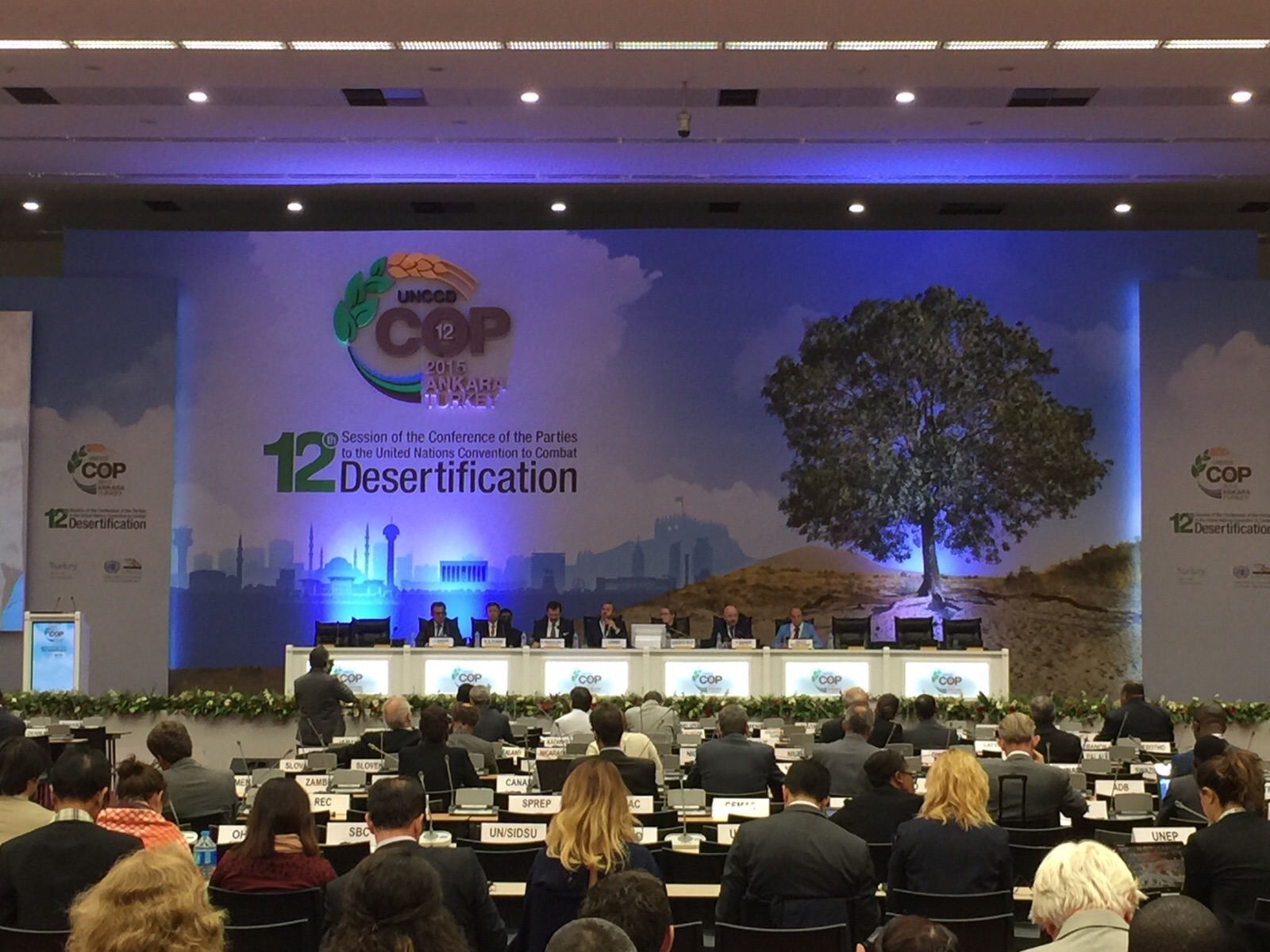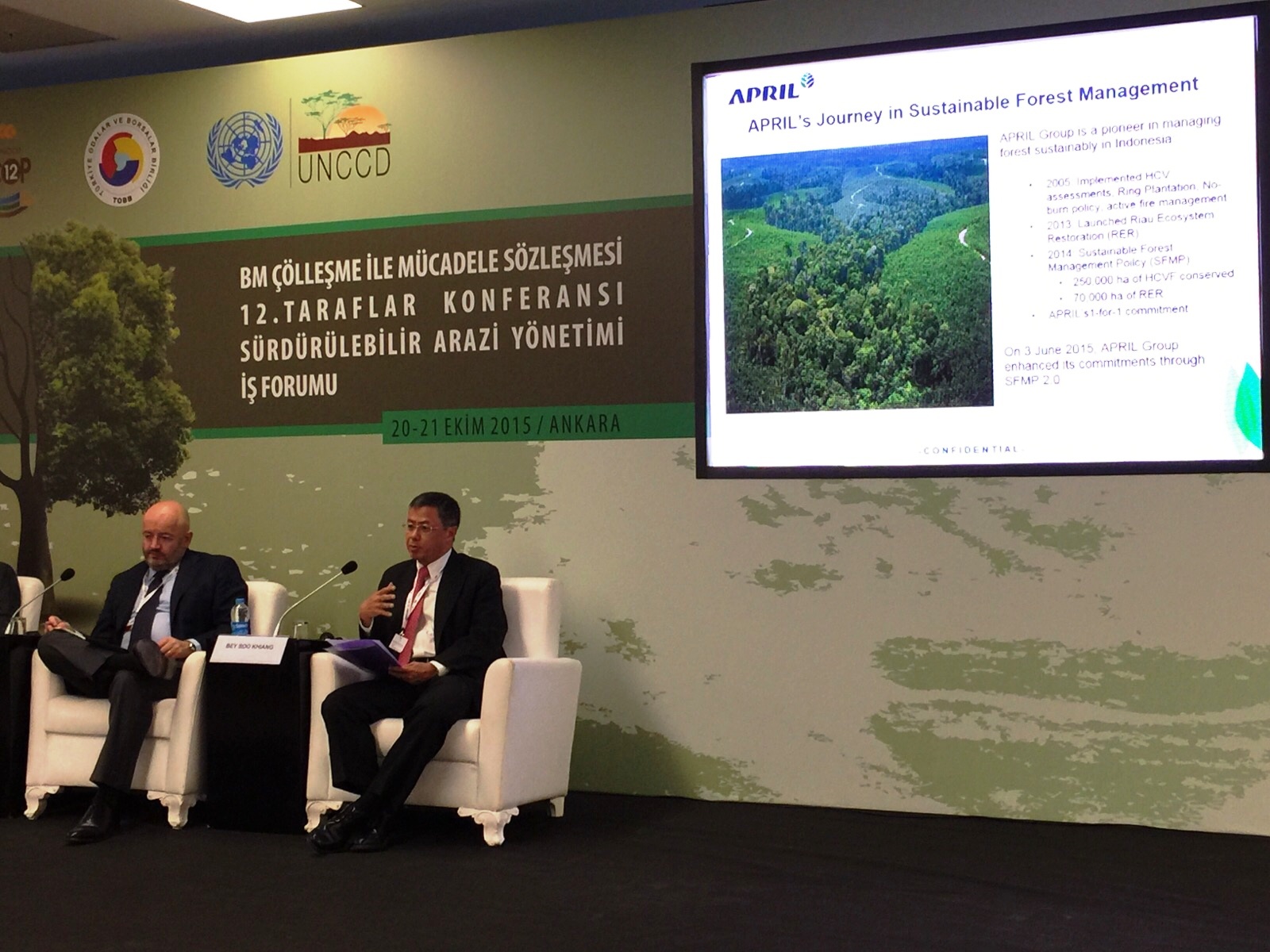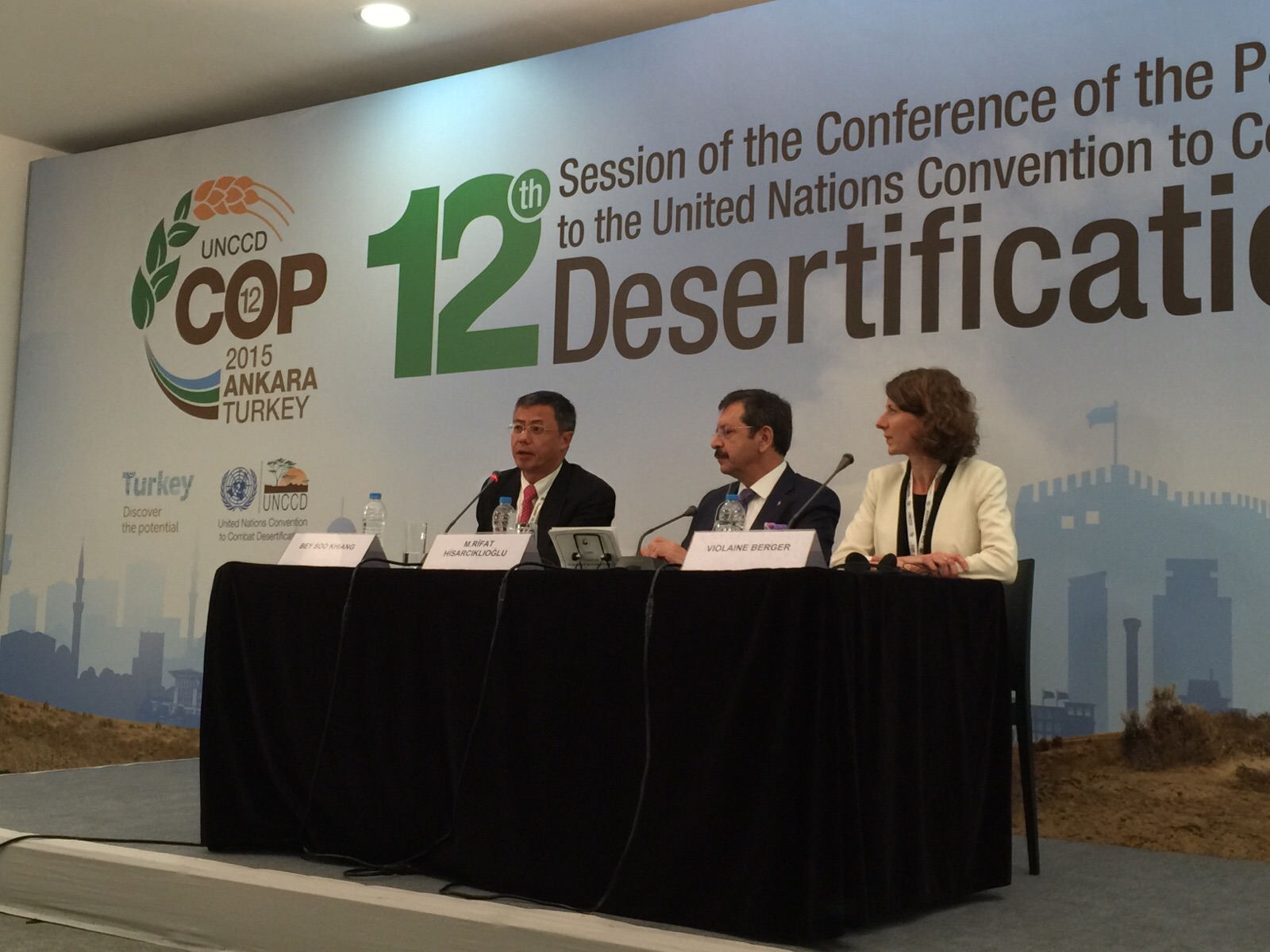Solutions to Land Degradation in Riau, Indonesia: A Perspective
In his address to Sustainable Land Management Business Forum* in Ankara, Turkey on 21 October 2015, APRIL Group Chairman, Bey Soo Khiang, discussed how public-private sector partnership can help achieve land degradation neutrality as well as achieve economic development at the local and national levels.

APRIL Chairman Bey Soo Khiang joins other CEOs at the WBCSD CEO Panel on Business Contributions to Land Degradation Neutrality
Organised by the United Nations Convention to Combat Desertification (UNCCD) and the World Business Council for Sustainable Development (WBCSD) around the margins of the 12th Conference of the Parties, the forum is framed as an opportunity for companies, NGOs and government to discuss sustainable land management and strategies to prevent land degradation.
Drawing on his experience, Bey remarked that eliminating the causes of deforestation in rural Indonesia such as illegal encroachment and forest loss through fire requires the adoption of a landscape approach. This ensures a healthy ecosystem that provides plantations with the natural services it needs in terms of water, productive soil, overall biodiversity, while also ensuring the sustainability of the business and the communities in which a company operates.
In APRIL Group’s experience, he remarked that success can be achieved by creating alternative livelihood opportunities that alleviate the pressure on forests by removing the economic incentive to deforest for short-term financial gain. These alternatives include outsourcing aspects of the company’s supply chain to locally-owned community businesses, providing an outlet for local entrepreneurial talent while creating employment and local economic growth opportunities. Capacity building and raising the technology competency of local communities to reduce dependency on imported or expatriate labour is another positive approach. In APRIL Group’s case, this has reduced the number of expatriates to 80 in a workforce of over 5,000 while leading to the provision of capital finance and ongoing business mentoring to approximately 200 community owned businesses.

WBCSD President & CEO Peter Bakker joins APRIL Chairman at the High Level Dialog on how business can contribute to solving land degradation challenge
Bey suggested that there was potential to adopt this landscape approach on a national basis in Indonesia. This was important, he noted, to ensure that large areas of unmanaged land, currently vulnerable to economic pressures in a country where 30 million exist below the poverty line, is either protected and conserved or developed responsibly as part of a holistic, sustainable framework.
Elaborating on this point, Bey pointed out that the Indonesian government has identified a total forest area of 130 million hectares. Of this area, 74 million hectares have been allocated to production forestry, with the remaining 43 percent of this area held for conservation and water and soil protection. A total of 34 million hectares remains unmanaged and vulnerable to encroachment and illegal conversion through slash-and-burn. This has contributed to the current fire and haze crisis that is again being endured by the people of Southeast Asia.

APRIL Chairman speaks to the media at the WBCSD press conference to launch the reports on Land Degradation Neutrality at the COP 12 of UNCCD.
He also suggested that it was important for government to continue to develop enabling regulatory frameworks that encourage more public-private sector conservation and restoration initiatives. Bey cited APRIL Group’s Riau Ekosistem Restorasi project as an example of private-public sector partnership, where the company has acquired 70,000 hectares of degraded peatland forest from the government, converting it to an eco-restoration license. It is now working with partners including Fauna & Flora International and social NGO, Bidara, to restore the landscape.



